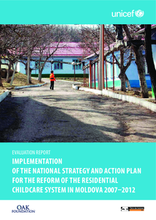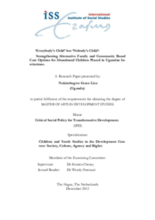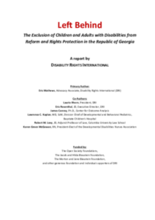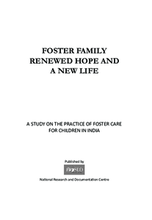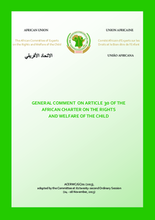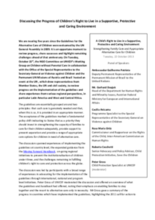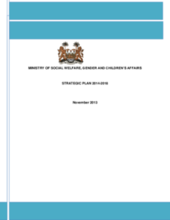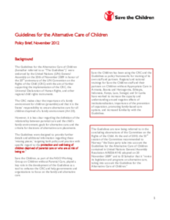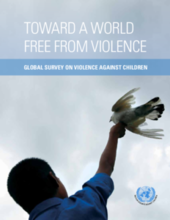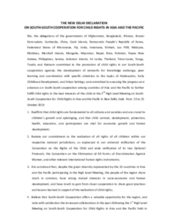Displaying 1161 - 1170 of 1759
The Government of the Republic of Moldova launched its childcare reforms in 2006 aiming to establish a network of community social assistants, develop family support services and alternative family placement services, and reorganise residential childcare institutions. This evaluation reviews the implementation of the National Strategy and Action Plan for the Reform of the Residential Childcare System 2007–2012 approved by the Government of the Republic of Moldova in July 2007.
The study examined alternative family and community care options and how they can be strengthened; cultural attitudes and perceptions of the communities and experiences of prospective foster and adoptive parents as regards reunification, kinship care, fostering and adoption.
This hard-hitting report by Disability Rights International is the product of a 3-year investigation into the orphanages, adult social care homes and other institutions that house children and adults with disabilities in the Republic of Georgia. It finds that although the Government of Georgia has undertaken an ambitious child care reform process over the last decade, institutionalized children with disabilities were largely excluded from this reform process.
This important study on foster care practices in India provides important insight into the history, approaches, challenges and opportunities facing the development of foster care services in the country, presenting a picture of foster care practices across nine Indian states.
The African Committee of Experts on the Rights and Welfare of the Child (ACERWC) held its twenty-second Ordinary Session from 4-8 November 2013 and issued its first General Comment on the African Charter regarding the rights and welfare of children of incarcerated and imprisoned parents and primary caregivers.
On Tuesday, October 22rd, the NGO Committee on UNICEF’s Working Group on Children without Parental Care in collaboration with the Office of the Special Representative to the Secretary-General on Violence against Children and the Permanent UN Missions of Austria and Brazil hosted an event at the UN, which drew representatives from Member States, the UN and civil society, to review progress on the implementation of the guidelines and share experiences from various regional perspectives.
This Strategic Plan for the Ministry of Social Welfare, Gender and Children Affairs (MSWGCA) of Sierra Leone outlines priority critical issues and challenges and key activities/interventions under four strategic areas.
This policy brief by Save the Children introduces the background, goals, and guiding principles of the Guidelines for the Alternative Care of Children endorsed by the UN General Assembly on the 20th of November 2009 while also explaining why family-based care is a preferred care arrangement over institutions. Furthermore, it suggests policy and practice recommendations to further protect children without appropriate care and strengthen families and communities.
The Global Survey on Violence against Children, conducted under the auspices of the Special Representative of the Secretary General on Violence against Children, examines the measures in place around the world to ensure follow-up to the recommendations set out in the 2006 UN Study on Violence against Children.
A New Delhi Declaration renewing governments' commitments to the rights of children and pledging to support each other in the achievement of those rights, was adopted unanimously on 25th October 2013 by 32 Asian and Pacific States attending the Second High Level Meeting on South-South Cooperation for Child Rights in Asia and the Pacific.

